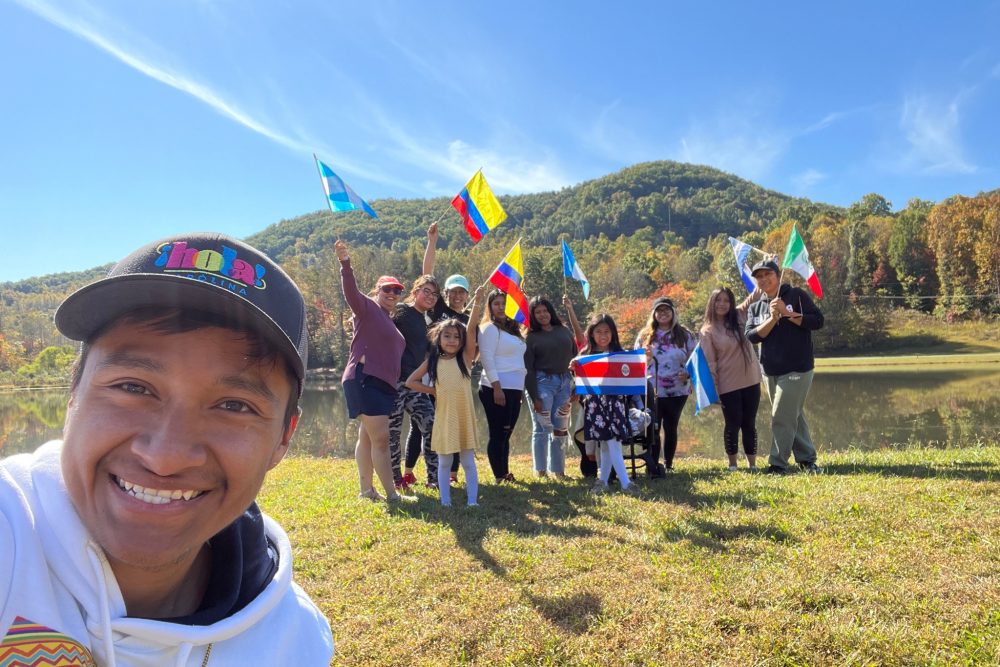Throughout WNC, families of all demographics grapple with inequities in the form of economic disparity, food insecurity, accessing educational or employment opportunities, lack of transportation and childcare, insufficient access to medical and behavioral healthcare and more. For Hispanic and Latino families, these struggles can be compounded with stigma and discrimination, plus systemic obstacles including language and translation barriers, inadequate legal representation, fewer legal protections for undocumented individuals, distrust and fear of xenophobia in the criminal justice system, and historical exclusion from civic and political spheres.
All these factors can leave Hispanic and Latino families with little bandwidth to engage authentically with their community. That is why Centro Unido Latino Americano (CULA) was established. Serving the rural community of McDowell County and surrounding areas since 2009, CULA offers more than a dozen programs designed to create secure spaces, establish cross-cultural partnerships, and promote social justice, health equity, and inclusive education opportunities for the Latino community and beyond. Their six strategic focus areas include Art & Culture, Education, Advocacy, Workforce, Health and Leadership. Between 2020 and 2022, the number of community members served by CULA skyrocketed from 300 to 2,500 per month, and accordingly, they increased their staff from only two part time staff to include an additional nine full time staff and four contracted teachers.
CULA’s programming includes a partnership with McDowell Access to Care & Health (MATCH) in which a representative regularly visits the CULA office to connect uninsured and underinsured individuals with resources for primary, preventative and specialty care, along with dental, vision and behavioral health providers. They also welcome the WNC Community Health Services (WNCCHS) mobile clinic to their office monthly to provide services such as immunizations, physicals, medical and dental exams, and dental cleanings. These programs are strengthened by the work of bilingual Community Health Worker Laura Zapater, who became a well-known and trusted leader of health among McDowell County’s Hispanic and Latino community during the height of the pandemic. While building one-on-one relationships with clients, becoming intimately aware of the barriers faced in the community, and developing a network of resources to address these various barriers, Laura has provided services to hundreds of clients and participated in many outreach activities to support the health of community members.
CULA also nurtures the health of the community through Helping Hands, a program that regularly distributes healthy and culturally appropriate foods for those experiencing food insecurity, provides access to clothing, cleaning and hygienic products, and local farmer partnerships. The agricultural portion of this program is supported by their Community Garden Program in which CULA partners with local gardens to promote nutrition and healthy eating habits while also educating folks on food cultivation and sustainability. To further encourage healthy lifestyle habits, CULA also launched Vida Activa, a program that promotes exercise for youth and adults by leading outdoor recreation activities, such as group hikes and walks on local trails in partnership with the Friends of Fonta Flora State Trail.
To help with legal/immigration issues, CULA has brought representatives from the Mexican and Guatemalan consulates into the region to help individuals access important records locally, rather than face potential transportation barriers associated with traveling to the state consular office in Raleigh. For English language learners, CULA offers interpretation services to clients, translating important documents and accompanying individuals to meetings with schools, medical providers, lawyers, local agencies, and more. CULA staff share similar lived experiences with many of their clients, ensuring that they are well positioned to address the community’s unique needs. As Executive Director Margarita Ramirez says, “Being an immigrant and suffering many of the systematic barriers myself motivates me to keep advocating for my community.”
This is only a sample of the work that makes CULA an invaluable resource for McDowell County. Going above and beyond for their clients, they also offer programs to target mental health and chronic disease prevention, support education, enhance workforce development, promote civic and political participation, and celebrate Hispanic and Latino arts and cultures. In these ways and more, CULA is touching lives by addressing and alleviating hardships associated with the unique experiences and intersections of Hispanic and Latino families, undocumented individuals, rural residents, low-income folks, and the community at large.


